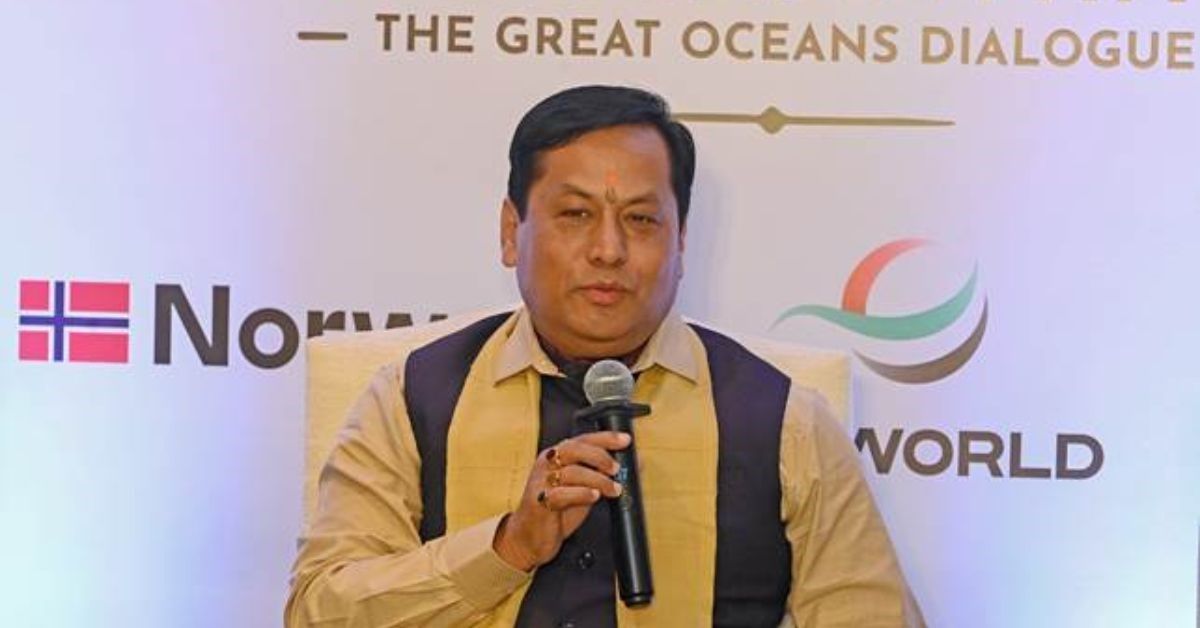The Observer Research Foundation and the Ministry of Ports, Shipping and Waterways co-hosted the first edition of the annual Sagarmanthan – The Great Oceans Dialogue on 18-19 November 2024 in the capital. The dialogue covered various critical topics on the blue economy, maritime logistics, ports, shipping and waterways sectors, critical minerals, diversified supply chains, the global maritime economy, and training and labour standards. The summit was attended by policymakers and ministers from 61 countries.
Secretary T K Ramachandran spoke on behalf of Prime Minister Narendra Modi, who was in Nigeria to attend the G 20 summit. Modi said, “Our vision for a free, open and secure maritime network – be it the Indian Ocean or the Indo-Pacific region – is finding resonance across the world. The ‘Indo-Pacific Oceans Initiative’ envisions marine resources as a key pillar for growth for nations. This dialogue on oceans further strengthens the rules-based world order and enhances peace, trust and friendship between nations.”
“The ‘Indo Pacific Oceans Initiative’ envisions marine resources as a key pillar for growth for nations. This dialogue on oceans further strengthens the rules-based world order and enhance peace, trust and friendship between nations. As we strive to realise the vision of a Viksit Bharat by 2047, dialogues such as Sagarmanthan are invaluable to build consensus, partnerships and most importantly, a prosperous future. With the collective efforts of all stakeholders, I am confident that these discussions will resonate far and wide, paving the way toward a brighter, more connected future.” PM in his message said.
Sarbananda Sonowal, Minister of Ports Shipping and Waterways, in conversation with Samir Saran, President, Observer, Research Foundation, India, said that to achieve the $10 trillion economy, it was necessary to create the ground for faster growth. Events such as Sagarmanthm would help India achieve the target. It was necessary to bring every sector to a world-class level.
To highlight the Climate Crisis, Christian Clauwers, Ocean and Polar Explorer, Environmental Reporter, and Documentary Photographer from Belgium, displayed stark photographs from the Arctic and Antarctic regions. With the photographic images, he intended to build bridges between scientists, institutions, governments, and industries. He talks to Indigenous people worldwide who have a closer relationship with nature. They maintained that what you took from nature, you also took a part of yourself. Clauwers displayed the ravages wrought by climate change in a series of photographs.
In the forenoon session, the theme dwelt on the Euro-Afro-Asian Century: Connecting the Heartlands of Future Growth. The speakers represented diverse institutions from across the world. Geoffrey E. Kaituko, Principal Secretary, State Department for Shipping & Maritime Affairs, Ministry of Mining, Blue Economy & Maritime Affairs, Kenya, emphasised the need to connect every part of Africa and adopt multimodal transport to connect to Europe and Asia. These would require significant investments through PPPs.
Lord Karan Bilimoria, House of Lords, United Kingdom, said the intra-Asia trade was rapidly growing. India’s trade flows and goods were growing phenomenally. He was impressed by how India partnered with different countries regarding container ports. He regretted that Britain was not one of the partners.
Unmesh Wagh, Chairman of Jawaharlal Nehru Port Authority, said Africa had over 26000 km of coast and about 100 ports. However, the major issue with Africa was the lack of intra-Africa trade. India was keen to partner with Africa to develop intra-African trade. He wanted the Indian industrialists to go to Africa. He set up factories there so that the raw materials could be used to manufacture value-added products for sale in Africa. It would not be a colonial kind of set-up.
In another session titled Energy and Shipping: Chartering a Course for Sustainable Trade, Arun Sharma, Advisor to the Chairman, Group Head for Sustainability and Climate Change, Adani Group, said that this was India’s moment. India had the expertise to store and supply ammonia. He felt that Indian renewable energy companies would benefit significantly from the IMO mandate for green fuels. He felt that the problem was not with the supply but the challenge was in the cost of shipping, which must be addressed in the developing world.
The post-lunch session title was A Decade of Development: Ship-building Hub for the 21st Century. In the scene-setting remarks, R. Lakshmanan, Joint Secretary, Ministry of Ports, Shipping and Waterways, said that shipbuilding was concentrated in a particular region of Asia. The East Asian shipyards are fully booked up to 2030. New orders would materialise post-2030. There was a pressing need for shipbuilding to be distributed across regions. He felt India was rightly positioned since it had a skilled labour force and was strategically located. India’s export was set to grow exponentially. Thus, India was clearly required to look at shipbuilding as a potential sector.
In the annual Sagarmanthan session titled Smart Seas: Innovation in Shipping and Beyond, Dhruv Kotak, Group Managing Director J M Baxi Group, said shipping was extremely process-driven. There were multiple processes. AI would play a big role. There would be a massive advent of AI agents across various nodes in the supply chain. There would be considerable disruptions in the system through the creation of new processes and new AI agents.







